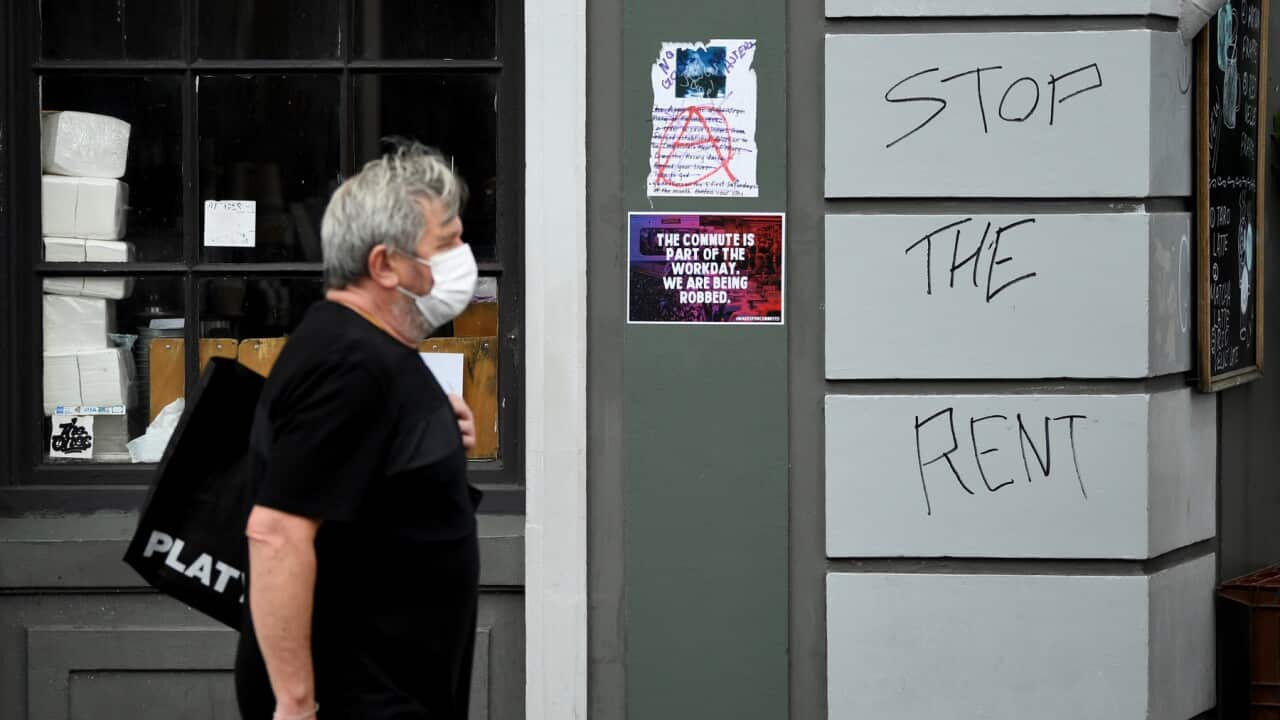You've inspected a flat to rent and like the look of it.
You can afford the asking price and think you've got a good chance.
Then you learn the agent has invited people to offer more than the advertised price and someone has said they'll pay an extra $100 a week.
You can't compete and you miss out. You've just become a victim of rent bidding.
South Australia became the latest state to move forward on a ban on rent bidding this week, hoping it could help ease rising rental prices.
It comes as Adelaide reaches its highest-ever median rent ($450 per week) while its vacancy rate is among Australia's lowest at 0.6 per cent. .
Premier Peter Malinauskas called it "a progressive step" that "seeks to get the balance right between the interest of landlords and tenants".
"But it's important if we want to protect those in our community who are simply just wanting to participate in the rental market with a chance of getting a roof over their head," he added.
The government hopes the reforms will be in effect by the end of the year.
It will join NSW, Victoria, Queensland, Tasmania and the ACT, meaning only Western Australia and the Northern Territory will allow the practice.
But instead of following in the steps of success, other Australian jurisdictions tell a different story of how the law is playing out.
What is rent bidding?
Rent bidding, also called rental bidding or a rental auction, is the process of negotiating the price of rent. Previously, some advertisements had a "price range" on the listing, instead of a set price to encourage it.
In the states that ban rent bidding, landlords and agents are now not allowed to share if someone has put in a higher bid or encourage a tenant to pay more to be competitive.
In the past few years, a number of states have jumped on the rent-bidding-ban bandwagon, hoping it would lock the rent price once it was listed. NSW banned the practice in December last year.
Announcing his state's ban, NSW Premier Dominic Perrottet said in a statement it was time "to put an end to this practice and give more people security and certainty."
NSW Minister for Fair Trading Victor Dominello said the reforms would strike the right balance between the interests of renters, landlords and real estate agents.
“It can be very distressing for prospective tenants who have submitted a rental application only to be told to increase their offer to improve their prospects of securing a property," he said in a statement.

Two people sharing their experiences on the Perth rental market to TikTok. Credit: TikTok/Zoe Newell, TikTok/Holly
Some prospective tenants are still offering more than the asking price as well as offering to pay rent in advance - sometimes as much as a full year.
What's the situation for renters after the bans?
Leo Patterson Ross, CEO of the Tenants' Union of NSW, told The Feed it's a predictable outcome.
"I was talking to someone today who had made 90 applications before being accepted and slept on a couch for a week at the end of it," Mr Ross said.
"If you're that desperate, if you've had that experience, then you might well be thinking 'I'm going to offer more' ... that is also rent bidding. But that's not being made unlawful."
Jo Natoli, who has worked as a property manager across Sydney's metropolitan for over 30 years, was disparaging about the NSW legislation.
"I mean it when I say the whole thing was a beat up from the beginning," she said.

A TikTok showing the lines at a Sydney rental property viewing. Credit: TikTok/ Ciara O'Loughlin
Ms Natoli said "ethical" agents have long been advised not to extract a higher price from tenants, which leaves her at a loss for what the legislation is trying to achieve.
"What was the purpose of the legislation in the first place?
"What were they trying to achieve? And what situation were they trying to alleviate?
"They thought - whoever 'they' might be - they thought they might help to alleviate the rental crisis and stop rent from rising? Is that what they thought, well, that's not going to happen."
When demand is so high and supply is so low, she said there will always be pressure on rent.
In Perth, where weekly rent has increased by 18.3 per cent in the past year according to SQM Research, an investment research house, the current vacancy rate is the lowest of all Australian cities at 0.4 per cent.

NSW Premier Dominic Perrottet announced a ban on rent bidding in December last year. Source: AAP / Dean Lewins
Could a rent bidding ban be making it worse?
Robyn Mannix, a Sydney-based property investment manager, said people were bidding 10 to 15 per cent above the asking price - and in some cases, the new rule had made it worse.
"It's working against the tenant in some cases, as tenants are offering over and above to secure a property, knowing that we cannot share other offers," Ms Mannix said in a statement.
Melbourne real estate agent Angie Vakrinos said for many renters, bidding more or offering to pay rent in advance is the only way people will get properties.
"I've been doing this for 25 years, and I've never seen it so high in demand. The bidding wars are going crazy.
"You've got prospective tenants turning up to opens (inspections) and there are 40 groups in there."
On the flip side, she said for agents like herself and for landlords, it's no surprise the bidding wars are working.
"You've got a lot of heavily cashed-up tenants at the moment who are prepared to offer a whole year in advance and look, it's favourable.
"I'm gonna try to get that and it's good for me as an agent too. I don't have to worry about arrears for the year. It makes my job a little bit easier.
"And it's great for the owner who has got mortgage repayments."
Additional reporting by Edwina Storie.











